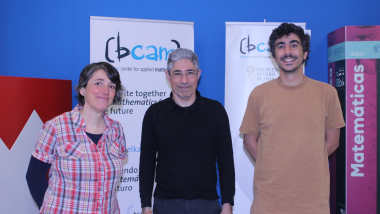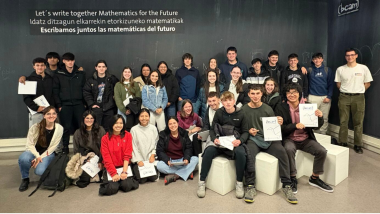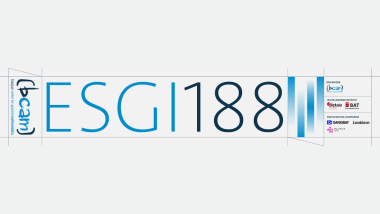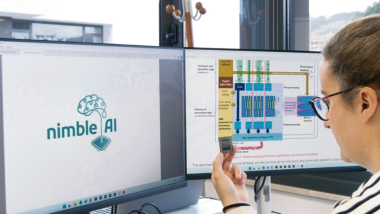BCAM participates in the project “Microscopic foundations of soft-matter experiments: computational nano-hydrodynamics”
The project led by principal investigator Marco Ellero, is granted within the “research challenges” category of the National R&D&I programme 2020
The project Microscopic foundations of soft-matter experiments: computational nano-hydrodynamics (Compu-Nano-Hydr) is led by the principal investigator Prof. Marco Ellero, group leader of Computational Fluid Dynamics group at the Basque Center for Applied Mathematics – BCAM. The research project aims at the development of new mesoscopic numerical methods for nano-hydrodynamics-assisted soft matter experiments with particular focus on magnetic nano-assembly in water, frictional dynamics, lubrication and interfacial film dynamics.
Compu-Nano-Hydr is part of a coordinated project (THEXP) granted within “research challenges” category of the National R&D&I programme 2020 together with a consortium of centers including the Universidad Autónoma de Madrid, Spanish National Research Council - CSIC, IMDEA Nanoscience Insitutte and Universidad Nacional de Educación a Distancia - UNED in Madrid. The main objective of this type of projects in this category is the development of solutions oriented to the eight great challenges of society in the Spanish research plan.
“The CFD group in BCAM will perform hydrodynamics-resolved simulations of magnetic field in the attempt to disentangle the microscopic fluid mechanics effects behind altered magnetization cycles. This will be done in collaboration with partners, e.g. IMDEA Nanoscience, where magnetic nano-assembly experiments are carried out”, explains the Prof. Marco Ellero.
In the future, the computer-assisted knowledge gained in magnetic nanoparticle assembly in water and the effects of different simulated microscopic features (surface functionalization, inhomogeneous slippage, morphology) on the dynamics, generated heat and the altered magnetization cycle, “can advance the understanding, control and optimization of biomolecule detection using alternating magnetic fields as well as on the phenomenon of magnetic hyperthermia, widely used in cancer therapies” remarks the PI of the project. “Also, it could possibly contribute to the society providing a better understanding and microscopic fluid flow control on novel techniques for biosensing based on assemblies of magnetic nano-particles in alternating magnetic fields”.
Prof. Marco Ellero points out that thanks to the present collaborative project, the CFD group in BCAM is strengthening links with other top research institutions in Spain, dealing with complex fluids, soft matter and nano-hydrodynamics and “three of them have been awarded with Severo Ochoa of Maria de Maeztu Excellence Awards in the past four years”.
In the near future, “the main challenges in Applied Mathematics, is to unveil and bridge the subtle link between fundamental mathematical theories and real applications. Awareness of the possible practical impact of mathematical tools (theories, models, algorithms, virtual data…) in the society should be scientifically rewarding and also a moral responsibility for researchers. Quoting da Vinci “[..] the urgency of doing. Knowing is not enough; we must apply. Being willing is not enough; we must do”, says Ellero. “In particular, the main effort of the CFD team in the next years will be on better integrations of microscopic flow effects into multiscale models and high-performance algorithms to simulate complex fluids in a more accurate and faster way”.
About Prof. Marco Ellero
Marco Ellero is Ikerbasque Professor of Computational Fluid Dynamics at the Basque Center for Applied Mathematics -BCAM, where he leads the research group “CFD: Modelling and Simulation” since 2018. He is also currently Honorary Professor at the Zienkiewicz Centre for Computational Engineering (Swansea University, UK) and member of the Institute of Non-Newtonian Fluid Mechanics (INNFM, UK). He obtained his PhD in 2004, in Theoretical Physics from the Technical University Berlin. Previous research experience includes Associate Professor at Swansea University (UK), Group Leader at the Technical University Munich (Germany) as well as postdoctoral positions at the UNED Madrid and Sydney University (Australia).
Related news
About the center
About the center




